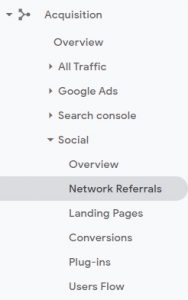Have you heard about Ford’s announcement to stop production of sedans (safe for two) and focusing more on trucks and SUVs? It’s a bold move that many analysts and competitors have questions and raised their eyebrows over. However, is it really that shocking of an announcement? Was their decision based off uncertainty in future trends? It’s no secret that sales of sedans in North America have been declining for the past decade. It then comes as little surprise that Ford’s decided not to pursue investing (and losing) in a segment that’s clearly not their area of strength.
Ford’s decision may have been shocking at first, however, it’s left some of their competitors happy knowing that there’s one less giant to compete against. All the while, other competitors are probably scratching their heads thinking, “should we be doing the same?”
The motor industry isn’t the only one that’s facing uncertainty on what areas to divest in and where they should enhance focus on. There’s the consumer electronics industry that’s pressured for innovation and creativity in their aging product lines. The hospitality and transportation industries that’re being troubled by disruptors like Airbnb and Uber. And of course almost all of the technology industry is in continuous uncertainty as to what future trends will be hot and which ones will be less favored.
However, that’s not all when it comes to uncertainty. Because of the effect of global warming, WWF estimates that 50% of the Earth’s top soil has eroded in the past 150 years. And then there are super-empowered individuals who can make or break big companies, questions around inequality and diversity that are altering the economic system, and skillpreneurs who are changing the workplace.
Business trends are hard to predict, however, they aren’t impossible. With companies now focusing on customer experiences, there’s a lot of data around what future trends may look like, however, the uncertainty of capitalizing on specific trends is still a hit or a miss. And that’s what’s troubling for leaders who are looking to exponentially grow their business.
So, how do exponential leaders such as yourself stay ahead of the changes that the business world is experience? Well, if not ahead, then at least at par with it?
1. Understand What Uncertainties Will Impact Your Key Customers
One of the best ways to find out how well your business is doing is by asking your customers:
- How satisfied are they with the value you add to them?
- What behaviors would they like to see in your company to retain them?
- What changes can impact their decision to do business with your company?
- How can your company help them stay ahead of these changes?
If the future is filled with uncertainty, you surely can’t be expected to answer these questions yourself. You need your customers’ feedback to devise a strategy and plan that can help you prepare for the future.
2. Connect with Advocacy Groups
Connecting with special interest groups and understanding what drives them is a great way to get a grip on what’s to come. What you’re looking to gain is an insight into their motivators, drivers, beliefs and goals. How are they planning to achieve their goals and targets is also essential for you to find out. Once you’ve understood these, figure out what impact their moves will have on the community, the industry and the overall outlook on customers. By keeping a pulse on advocacy groups within your industry you’ll be prepared for uncertainty.
3. Observe and Learn from Startups
Startups are interesting in that they don’t have legacies to hold on to, making them agile and nimble. They’re following market trends and learning on the fly on how to survive and grow. So they have a closer understanding of customer needs and desires. And, since they’re in their infancy stage, their business models are fascinating. However, they’re also highly threatening for traditional, established and larger companies in the same industry. By observing and understanding startups you can seek inspiration on what to do and how to shape your company. Startups usually are brimming with new ideas and innovation. Take lead from them and you’ll have an edge over any uncertainty that may arise.
4. Learn Something Wacky
Being an expert in an area doesn’t mean you should and need to restrict yourself to that domain. Be fluid. Learn a whacky course that’s completely unrelated to your profession or area of expertise. Steve Jobs credited his love for design and simplicity to the calligraphy course he took after dropping out of college. If it worked for him, I’m sure it could for you as well. There’s so much to choose from out there and it’s all so accessible thanks to platforms like Udemy and Coursera.
As an exponential leader you know that change and uncertainty can’t be stunted or slowed down. The only thing for you to do is to be alert and prepared for uncertainty. Just how prepared and adaptive you are to change will dictate how successful your future will be.
Business & Finance Articles on Business 2 Community(40)







